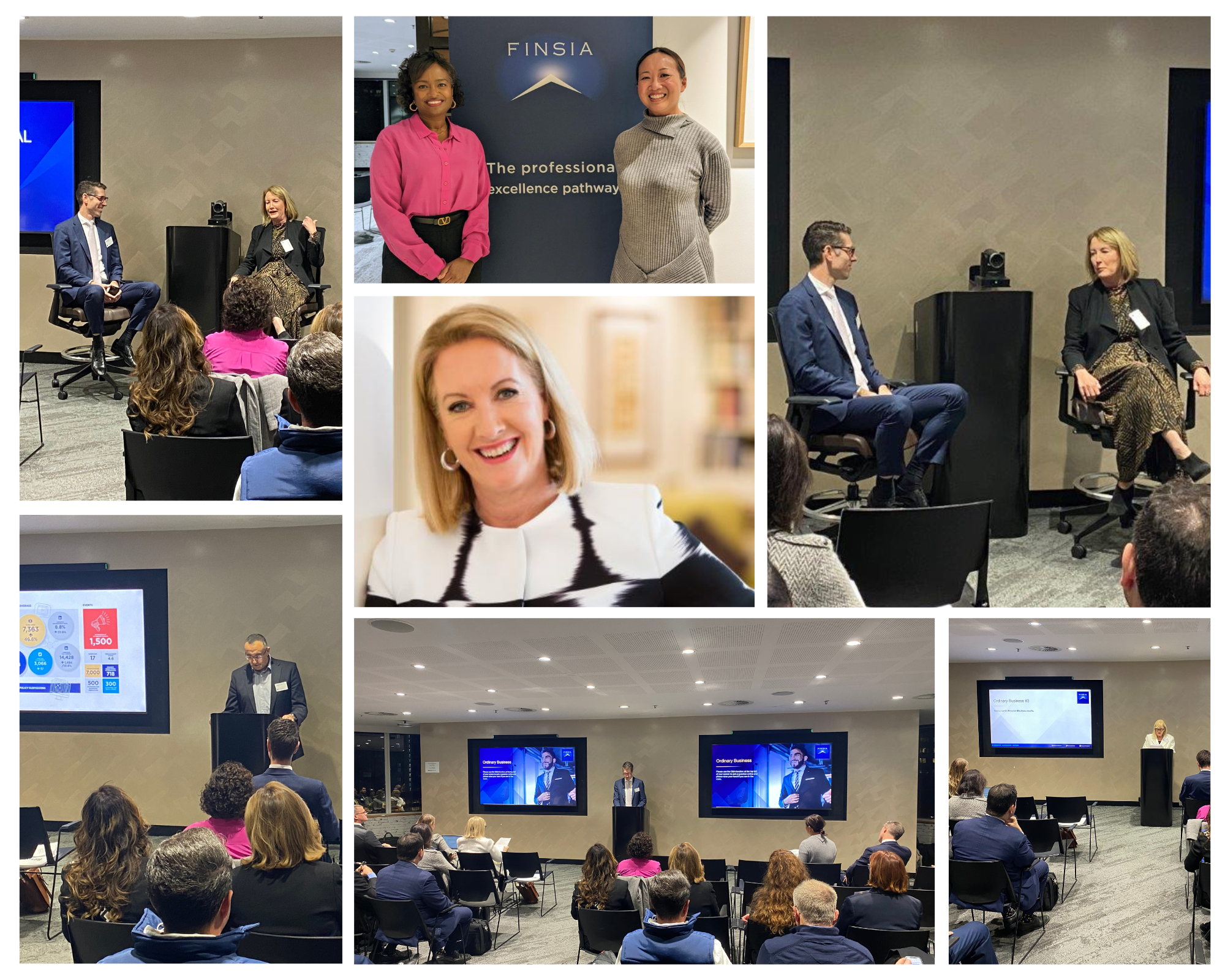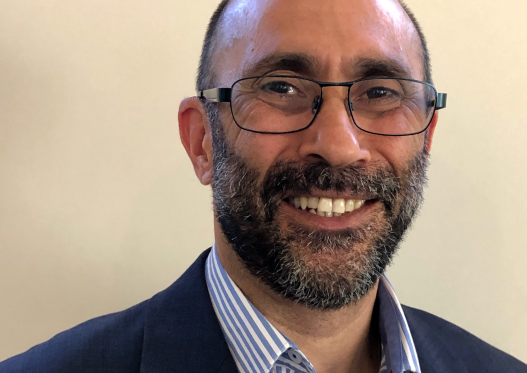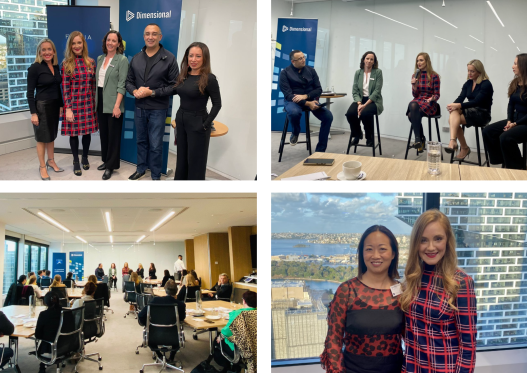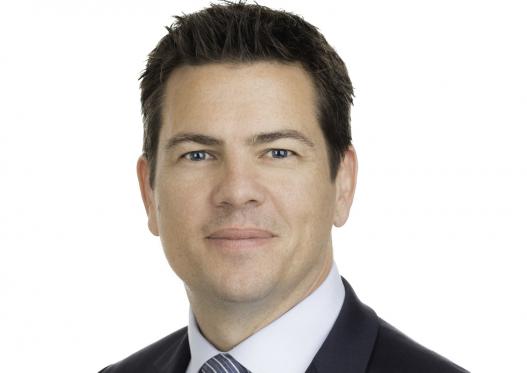Gender diversity champion Elizabeth Broderick has acknowledged FINSIA’s important role in advocating for change at a special post-AGM event.
Australia’s longest-serving Sex Discrimination Commissioner spoke about joining the organisation more than three decades ago with her then-boyfriend.
While recalling with some amusement a determination to get better marks than the man who would become her husband, Elizabeth made clear how important education is in financial services and the wider community.
A United Nations Special Rapporteur and Independent Expert on the UN Working Group on discrimination against women and girls since 2017, Elizabeth also spoke about the ongoing tragedy in Afghanistan and pushback against human rights around the globe.
“We're living in a time of such incredible complexity and uncertainty in the way organisations operate and the interactions between individuals,” said Elizabeth AO SF FIN.
“I think FINSIA’s role is in helping to demystify some of that and also to take some of the fear away - because, I go into a lot of organisations looking at culture and I think there's a lot of fear about what's okay and what's not, never mind the technical content.”
Watching FINSIA’s development and seeing the importance of education was admirable, she said.
“I commend the work that you are doing and that education is one of your stated priorities, I think this is excellent as well.”
Talking about mobilising corporate Australia and the creation of Male Champions of Change, which is now Champions of Change Coalition, Elizabeth explained: “I came into the sex discrimination commissioner role thinking I'm just going to reach out to all the magnificent women in Australia and together we are going to step up and shift this country on gender equality.
“But after a couple of years I started to understand that gender equality is actually about the redistribution of power, whether that's in the family, in an organisation or indeed in a nation.
“And if we want to redistribute power, we need to work with those who hold the levers of power. And that's largely, not exclusively, but largely men. And that was particularly the case 12 years ago.
“So it started with men. I wanted it to be that way because it had to be disruptive and actually it was.”
Elizabeth recalled how the Male tag in the title was dropped after being challenged about reinforcing the patriarchy by getting a group of men together.
“But it's still about the accountability of men; men stepping up with women and taking equal responsibility and accountability for change.
“That is really critical because if gender equality is just put on the shoulders of women, then any failure will also be laid at the feet of women. And gender equality benefits everyone.”
Taking this theme further in answer to a question on targets, she said: “If you talk to any one of our 270 CEOs in the Champions of Change, every one of them would have targets. And they would report against that.
“What we know from all the research is if you don't have a target, and you set a number in every other aspect of your business, why wouldn't you set it in this one? And the thing about having a target is that if you've got a number of strategies to reach that target and they're not delivering, you're much more likely to throw the strategy out than hang onto it and think it's going to deliver you a different outcome. So I think the research is clear, targets are important including targets with teeth. You've got to hold people accountable for targets.”
Australia is leading the way when it comes to domestic violence as a workplace issue but we should not become complacent, according to the UN Global Ambassador.
“We are number one in the world in recognising domestic violence as a workplace issue. Most other countries I visit, the private sector would not be involved in preventing domestic violence.
“But if you didn't understand it before COVID, you certainly need to understand it now because most of us are working on and off from home and any violence that is happening in my home is now happening in our workplace.
“So there's an obligation on employers to step up on this.”
Tackling the global pushback against democracy and human rights, highlighted by ingrained government misogyny in Afghanistan that stops girls from receiving an education after the age of ten, Elizabeth said: “There's a pushback on human rights and particularly the rights of women and girls in the LGBTQ community.
“There's also pushback on democracy generally.
“So we are in a moment, and if you are sitting on the fence on human rights, now's your moment to get active because we need everyone that we can on this journey.”








